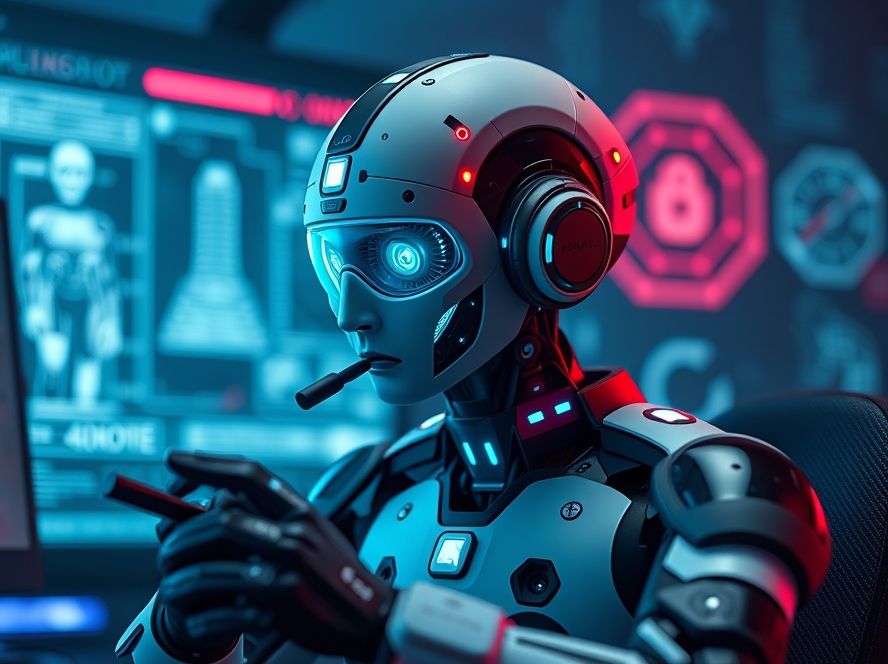AI for Gaming: The Definitive Glossary
In the rapidly evolving world of technology, AI for Gaming has emerged as a transformative force, reshaping the landscape of how games are developed, played, and experienced. But what exactly does this term mean? In this article, we will explore the definition, significance, and various applications of AI in gaming, providing a comprehensive understanding for students, professionals, and beginners alike.
Defining AI for Gaming
AI for Gaming refers to the use of artificial intelligence technologies in the development and enhancement of video games. This encompasses a range of applications, from non-player character (NPC) behavior to procedural content generation and even player experience personalization. AI algorithms analyze player behavior, adapt game difficulty, and create immersive environments, making the gaming experience more engaging and dynamic.
The Importance of AI in the Gaming Industry
Understanding the importance of AI in gaming requires a look at its impact on gameplay, player engagement, and overall game development. AI has revolutionized how games are created and consumed:
- Enhanced Player Experience: AI algorithms analyze player actions and preferences, allowing for tailored experiences that adapt in real-time.
- Dynamic NPC Behavior: With AI, NPCs can react intelligently to player actions, creating a more immersive environment.
- Procedural Content Generation: AI can generate vast and diverse game worlds, providing unique experiences for players every time they enter the game.
- Game Testing and Development: AI can automate testing processes, identifying bugs and optimizing gameplay more efficiently than human testers.
Key Applications of AI in Gaming
Let’s delve into some specific applications of AI in the gaming industry:
1. Intelligent NPCs
Non-player characters (NPCs) are crucial for creating a believable game world. AI allows NPCs to make decisions based on player behavior, enhancing realism. For example, in games like The Last of Us, NPCs learn from players, making them more challenging opponents. This adaptability keeps gameplay fresh and engaging.
2. Personalized Gaming Experiences
AI can analyze a player’s history and preferences to tailor game experiences. Games like Fortnite use AI to adjust difficulty levels based on the player’s skill, ensuring that both novice and expert players have enjoyable experiences. This personalization fosters greater player retention and satisfaction.
3. Procedural Content Generation
AI-driven procedural generation allows developers to create expansive game worlds with minimal manual input. Titles such as No Man’s Sky utilize this technology to generate planets, ecosystems, and even entire galaxies, offering players a virtually limitless universe to explore. This innovation not only saves development time but also enhances replayability.
4. AI in Game Testing
Quality assurance is vital in game development. AI systems can simulate player behavior and identify bugs more efficiently than traditional testing methods. For instance, companies like Electronic Arts are utilizing AI to analyze gameplay patterns, helping developers refine and polish their games before release.
Practical Applications: How to Use AI in Your Gaming Experience
For gamers looking to leverage AI technologies in their play, here are some practical applications:
- Experiment with AI-Enhanced Games: Seek out games that utilize AI for dynamic gameplay, such as Left 4 Dead, which uses AI to control zombie behavior based on player performance.
- Participate in AI-Driven Game Communities: Join forums and communities focused on AI in gaming. This can enhance your understanding and provide insights into how AI is shaping future games.
- Explore Game Development Tools: If you’re interested in creating games, consider using AI-driven tools like Unity or Unreal Engine, which offer AI components to streamline development.
Related Concepts in Gaming and AI
Understanding AI for Gaming also involves exploring related concepts:
- Machine Learning: A subset of AI that enables systems to learn from data, improving their performance over time without being explicitly programmed.
- Deep Learning: A more complex form of machine learning that uses neural networks to process data, crucial for developing sophisticated AI behaviors in games.
- Virtual Reality (VR): The synergy between AI and VR creates immersive environments where AI can enhance realism through intelligent interactions.
Conclusion: The Future of AI in Gaming
As we move forward, the integration of AI for Gaming will continue to evolve, offering even richer experiences for players and new opportunities for developers. The blend of creativity and technology is paving the way for more interactive and personalized gaming experiences. Whether you’re a gamer, a developer, or just curious about the future of gaming, understanding AI’s role is essential.
Reflect on how you can incorporate AI-driven experiences into your gaming routine. Engage with games that utilize advanced AI, explore game development tools, and stay informed about the latest trends in AI technology. Embrace the future of gaming!









